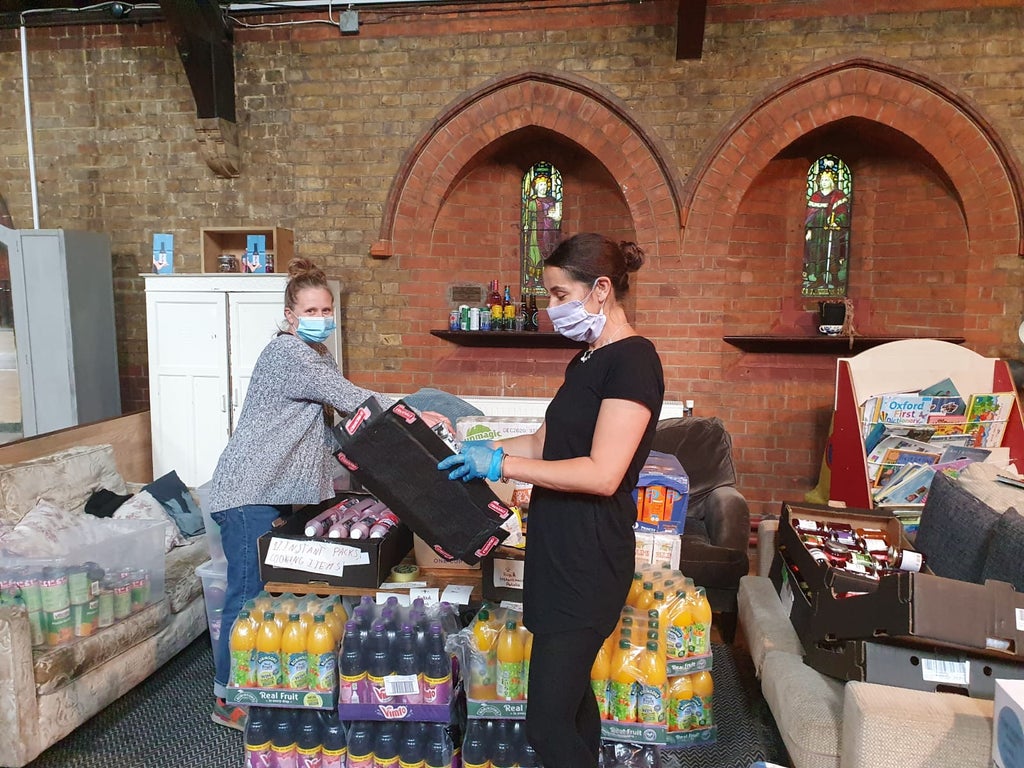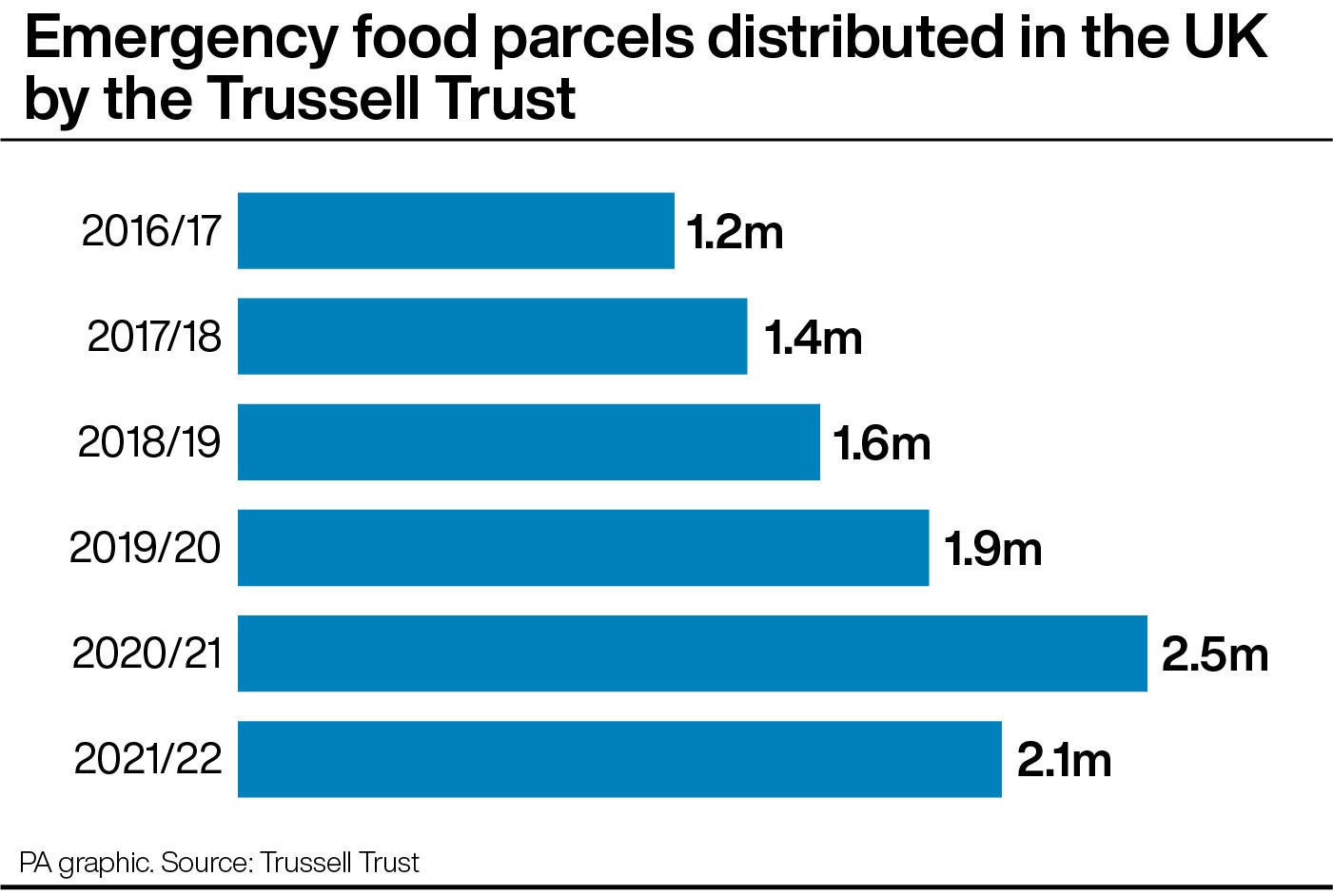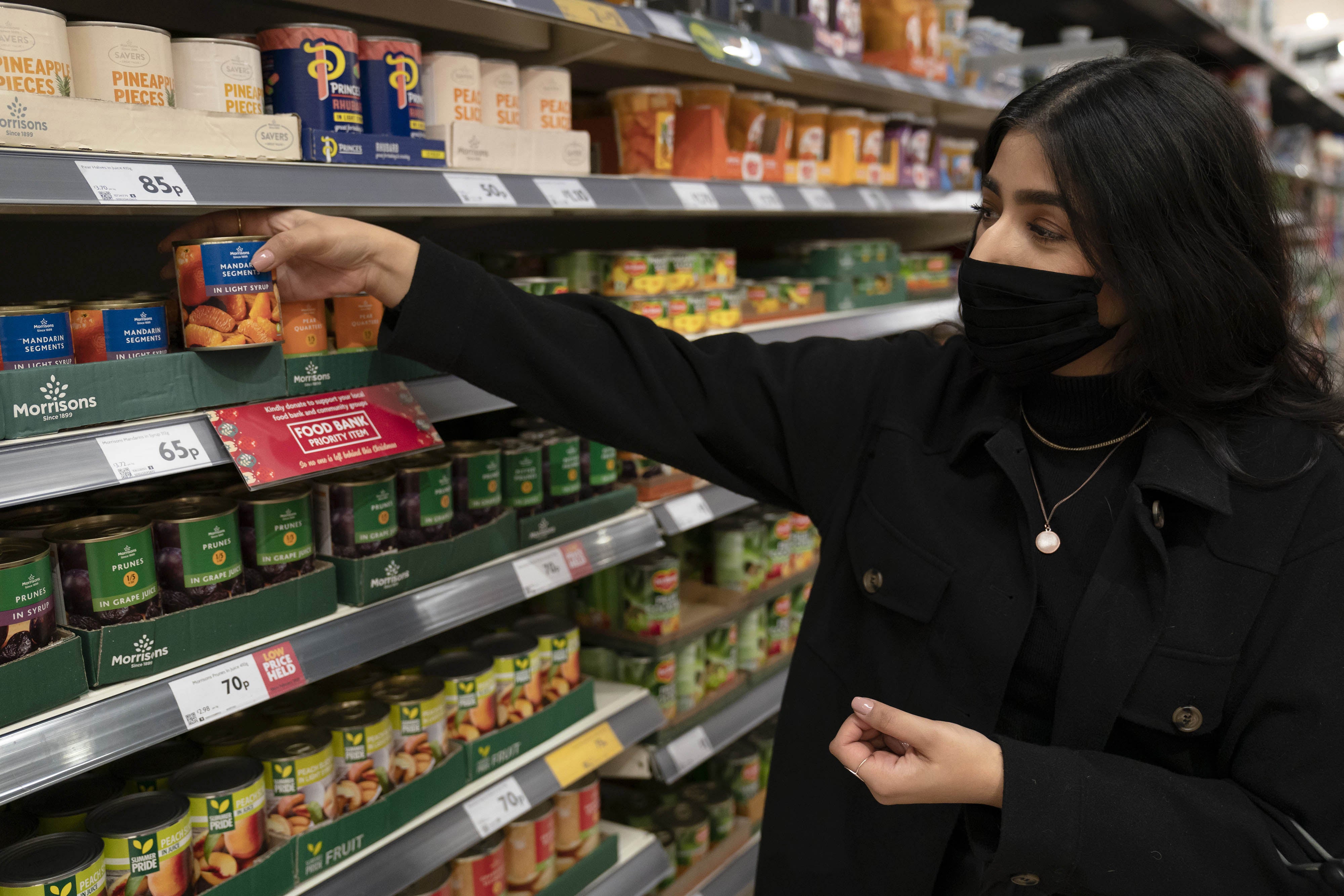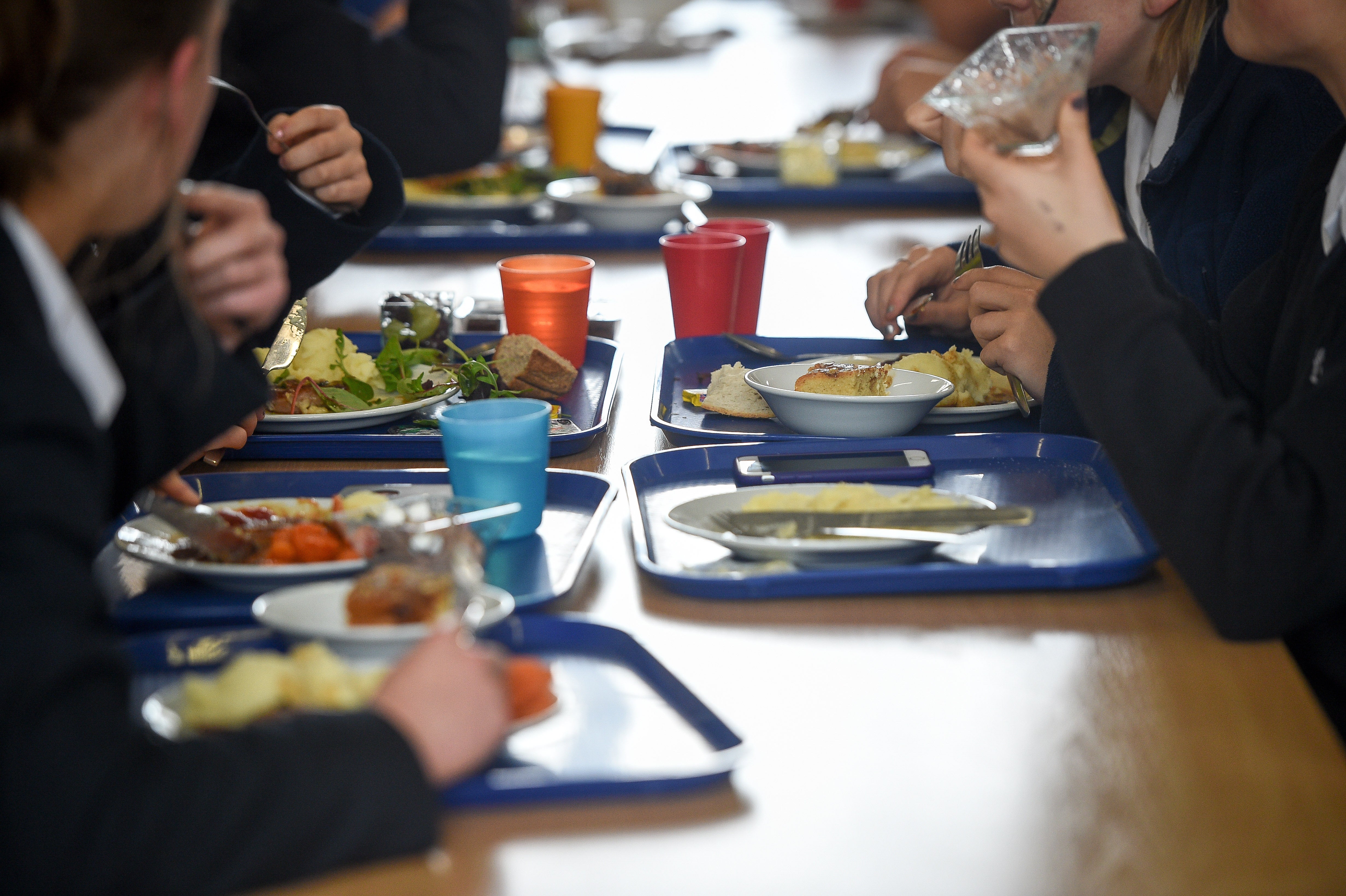
Food bank managers are warning of an accelerating crisis across the UK as the cost of living continues to soar.
New figures released on Tuesday reveal food banks in the Trussell Trust’s network provided more than 2.1 million parcels to people facing financial hardship across the country, from 1 April 2021 to 31 March 2022.
It is the first time food banks in the Trussell Trust’s network have provided more than two million parcels outside 2020/21 during the height of the pandemic.

And the Trust warned parents are taking drastic measures such as skipping meals, turning off appliances and going without heating to afford the internet so their children can do their homework.
The 2022 figure represents a 14% increase compared to the same period in 2019/20 – with more than 830,000 parcels provided to children alone, a 15% increase from 2019/20, when 720,000 were provided.
The Trussell Trust says food banks in its network also experienced their busiest winter outside 2020 at the height of the pandemic, providing 1.2 million parcels in the second half of the year alone. That is more parcels than were provided for 2016/17, just five years ago.

While inflation continues to increase and rising bills put pressure on families across the country, the Trussell Trust says its network expects the need for emergency food to rise further still over the coming months.
One food bank manager said: “The people who come in are telling me they’re scared. People are beside themselves about what the next six months will bring.”
According to the trust, one in three people on Universal Credit are already skipping meals, but the charity says the UK government is still choosing not to protect people who are already struggling to make ends meet.
With the energy price cap rise just starting to take effect, the charity says for most people at risk from financial hardship – who cannot work or work longer hours due to disability, caring responsibilities or mental health issues – there is very little protection ahead.

One service user called Tim, 36, from London, who works in a high street shop and receives Universal Credit said he’s worried about how he’s going to make ends meet.
He said: “I’m trying to make the best out of the situation but have already had to use a food bank.
“I’ve also made the decision not to turn my heating on to save money and to go without certain types of food. For things to change, the government needs to increase the amount of social security payments so that everyone can afford to put food on the table.”
How can this be right in a society like ours?
Emma Revie, chief executive of the Trussell Trust, said the Government should bring benefits in line with the “true cost of living” by increasing them by at least 7%.
She said: “People are telling us they’re skipping meals so they can feed their children. That they are turning off essential appliances so they can afford internet access for their kids to do their homework.
“How can this be right in a society like ours? And yet food banks in our network tell us this is only set to get worse as their communities are pushed deeper into financial hardship. No one’s income should fall so dangerously low that they cannot afford to stay fed, warm and dry.”
Jonathan Ashworth, Labour’s shadow work and pensions secretary, said: “Food Banks are a symptom of economic failure and ministers must now offer real help to working people, disabled people, families and pensioners struggling to feed themselves. As a start, ministers should back Labour’s call for an emergency budget to offer real solutions to the cost-of-living crisis.”
A spokesperson for the Department for Work and Pensions said: “We recognise the pressures on the cost of living and we are doing what we can to help, including spending £22 billion across the next financial year to support people with energy bills and cut fuel duty.
“For the hardest hit, we’re putting an average of £1,000 more per year into the pockets of working families on Universal Credit, have also boosted the minimum wage by more than £1,000 a year for full-time workers and our Household Support Fund is there to help with the cost of everyday essentials.”







